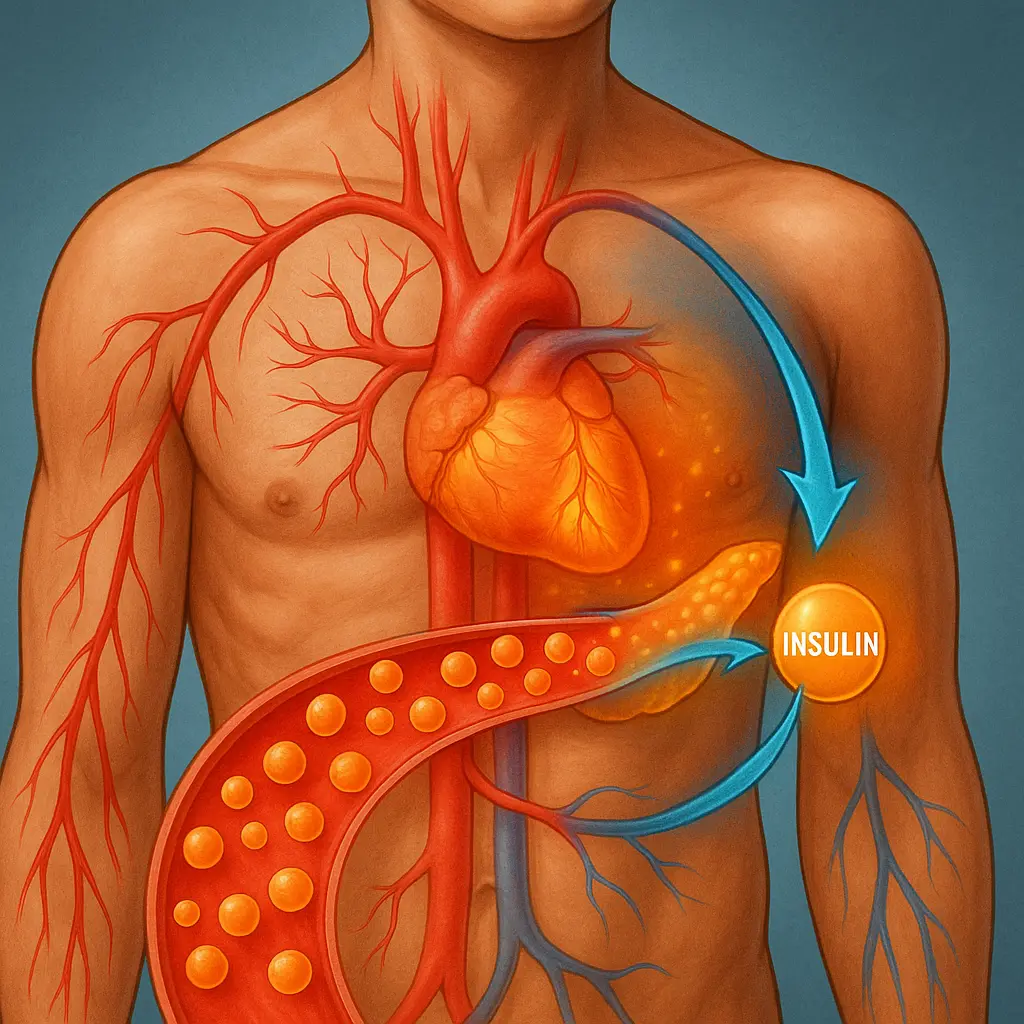Understanding Type 2 Diabetes
Empower Your Health Journey
Discover how lifestyle changes and early education can transform your life with Type 2 Diabetes.
Lifestyle changes Page
We can discuss simple lifestyle changes to help one cope with Diabetes
Discover More Page
Stress importance of understanding diabetes at an early stage and how onbe can cope with it effectively to lead a normal balanced life.
Lifestyle Changes Page
What changes one can make straightaway
Join Class Page
Show C4C locations/sessions etc
What is Type 2 Diabetes?

Understanding the Risks of Type 2 Diabetes
Learn about the potential complications and health risks associated with unmanaged Type 2 Diabetes.
What are the long-term risks of Type 2 Diabetes?
Unmanaged Type 2 Diabetes can lead to cardiovascular disease, nerve damage, kidney damage, eye damage, and an increased risk of infections.
How does Type 2 Diabetes affect heart health?
Type 2 Diabetes increases the risk of heart disease and stroke by contributing to high blood pressure and cholesterol levels.
Can Type 2 Diabetes lead to nerve damage?
Yes, high blood sugar levels can damage nerves, leading to neuropathy, which causes pain, tingling, or numbness, particularly in the legs and feet.
What is the impact of Type 2 Diabetes on kidneys?
Diabetes can damage the kidneys’ filtering system, leading to diabetic nephropathy, which may progress to kidney failure if not managed.
How does Type 2 Diabetes affect vision?
High blood sugar can damage the blood vessels in the retina, leading to diabetic retinopathy, which can cause vision loss if untreated.
Are there lifestyle changes that can reduce these risks?
Yes, adopting a healthy diet, regular exercise, and consistent monitoring of blood sugar levels can significantly reduce the risks associated with Type 2 Diabetes.
Can stress management help with Type 2 Diabetes?
Managing stress through mindfulness and relaxation techniques can help maintain stable blood sugar levels and improve overall health.
What role does diet play in managing Type 2 Diabetes?
A balanced diet rich in low-GI foods and healthy carbs can help control blood sugar levels and prevent complications.
Is regular exercise beneficial for Type 2 Diabetes?
Yes, regular physical activity improves insulin sensitivity and helps maintain healthy blood sugar levels, reducing the risk of complications.
Recognizing Symptoms
Common Signs of Type 2 Diabetes
Type 2 Diabetes often presents with subtle symptoms that can be easily overlooked. Common signs include increased thirst and frequent urination, which occur as your kidneys work overtime to eliminate excess sugar from your blood. Unexplained weight loss and constant hunger may also signal that your body isn’t using insulin effectively. Fatigue and blurred vision are other symptoms that arise from fluctuating blood sugar levels. It’s crucial to be aware of these symptoms and consult a healthcare provider for proper diagnosis and management.
Additionally, slow-healing sores and frequent infections can be indicative of Type 2 Diabetes, as high blood sugar impairs your body’s ability to heal and fend off germs. Tingling or numbness in the hands and feet, known as neuropathy, is another common symptom. Early detection and management of these symptoms can prevent complications and improve quality of life.

The Power of Early Education
Understanding Type 2 Diabetes is the first step in managing it effectively. Early education empowers individuals to make informed decisions about their health, reducing the risk of complications. By learning about the disease, its causes, and its effects, individuals can take proactive steps to control their condition. Education also highlights the importance of regular monitoring and the role of diet and exercise in maintaining healthy blood sugar levels.
Lifestyle changes, such as adopting a balanced diet and incorporating regular physical activity, are crucial in managing Type 2 Diabetes. These changes not only help control blood sugar but also improve overall health and well-being. Educating yourself about these aspects can lead to significant improvements in managing the condition and enhancing your quality of life.
Lifestyle Changes for Better Health
Implementing lifestyle changes can significantly impact the management of Type 2 Diabetes. These changes are not just about diet and exercise; they encompass a holistic approach to health.
Balanced Nutrition
Regular Exercise
Stress Management
Take the First Step Towards Better Health
Empower yourself by joining a local class or seeking more information about managing Type 2 Diabetes. Discover how lifestyle changes can make a significant impact on your well-being. Act now and embrace a healthier future.
